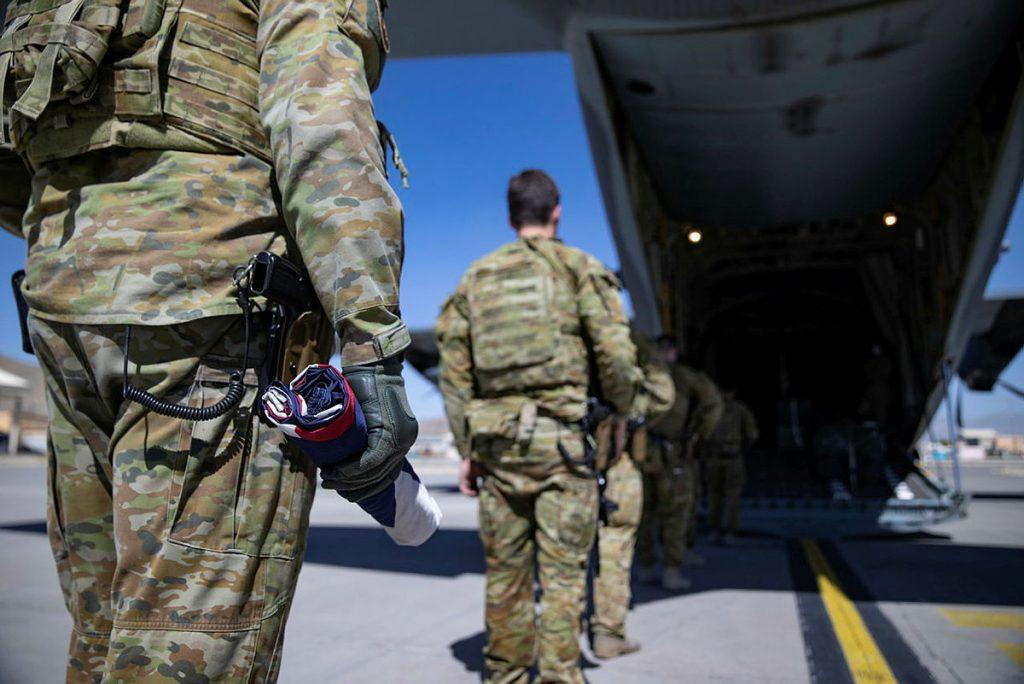Why is Australia talking about going back to Afghanistan when we only just left?
Posted By John Coyne and Teagan Westendorf on July 22, 2021 @ 10:30

Last week, with little fanfare, Australia’s last six soldiers departed Kabul on a RAAF aircraft. Australia shut up its intelligence and diplomatic presence in Afghanistan. Incredibly, it’s now been reported that Foreign Affairs Minister Marise Payne is inclined to stage a careful return [1] of diplomatic and intelligence officers to Afghanistan.
The minister’s spokesperson went further by stating the withdrawal was ‘always expected to be temporary, with the intention of resuming a permanent presence once circumstances permit’.
If our commitment to the two-decade war in Afghanistan was about preventing the country from becoming a terrorist base, then the re-establishment of a diplomatic and intelligence post in Kabul is all but inevitable. But how did we end up in this situation so soon?
Americans had become increasingly unhappy with the expenditure of US blood and treasure in Afghanistan. Osama bin Laden was no more, and al-Qaeda had quietly slipped from the media and the front of mind of Americans and Australians alike. For the broader American population, the painful memory of the 9/11 attacks had been obscured behind the fresher memory of what operations in Afghanistan have cost them.
For years, the thread connecting Afghanistan with the global threat of terrorism has been increasingly difficult to maintain.
President Joe Biden’s July announcement that US military operations would cease was hardly a surprise. However, the 31 August deadline was probably a bolt from the blue requiring rapid decisions by US allies, Australia included.
Biden justified the speedy drawdown by arguing ‘the United States did what we went to do in Afghanistan’. That was to destroy the 9/11 terrorists, leadership and supporting networks, and to ‘degrade the terrorist threat’ so Afghanistan wouldn’t be a base from which attacks on the US could be organised.
Not to ‘nation-build’.
But he also said there’d be no ‘mission accomplished’ celebration. That belies the truth that nation-building in Afghanistan is fundamental to reducing the conditions in this profoundly broken country that terrorists have historically exploited to organise, train and mobilise their ranks.
Fifty years of experience suggests that a return to these conditions will see Afghanistan again hosting groups such as the Islamic State in the north, which are reportedly growing and which threaten to destabilise the region.
China and Russia may seek to use Afghanistan to further their geostrategic interests. All of this will ensure that Afghanistan remains broken.
So, how could the factors encouraging terrorism be removed if nation-building wasn’t central to the US and allies’ mission? With Biden’s decision, Australia faced a tough decision. Could we protect our diplomats and intelligence officers as the US departed and the Taliban advanced? Clearly, no.
What a difference a week can make.
That 650 US troops remain in Kabul to protect their embassy may have contributed to Australia’s change of heart.
We are unlikely ever to know the full reason Australia is planning to return as fast as it left, but the clear thing that has changed in the past week has been the Chinese Communist Party’s commitment to be involved in Afghanistan. China’s foreign affairs minister, Wang Yi, said as much at a press conference on 13 July and in a Ministry of Foreign Affairs story posted online [2] that day, when he pledged China’s support for all parties in Afghanistan.
China has shown interest in filling some of the economic and diplomatic void left by the US departure. The CCP has an interest in developing diplomatic ties with Afghanistan to lessen the likelihood of the Taliban supporting Muslim Uyghurs in Xinjiang. It would also be keen to ensure that a resurgent Taliban doesn’t disrupt its Belt and Road initiatives in Pakistan.
These economic and security concerns will both be served if a Taliban-led government is able to suppress the growing Islamic State elements in the nation’s north. Russian officials say Islamic State is focused on destabilising central Asia rather than agitating for domestic change. If it gathers strength, it could spell trouble for a new Taliban administration trying to secure the state.
The CCP is also eager to increase Chinese economic investment in Afghanistan, especially if it can secure access to its unexploited reserves of copper, coal, iron, gas, cobalt, mercury, gold, lithium and thorium.
With Australia’s increased focus on the Indo-Pacific, neither the intelligence nor diplomatic community can afford to have a blind spot in Afghanistan that crosses both geopolitical and terrorist threats.
Technical intelligence collection, including signals intelligence, will likely remain valuable. However, nothing beats having boots on the ground, especially in a country where little makes sense from afar.
Article printed from The Strategist: https://aspistrategist.ru
URL to article: /why-is-australia-talking-about-going-back-to-afghanistan-when-we-only-just-left/
URLs in this post:
[1] return: https://www.abc.net.au/news/2021-07-20/australia-considering-return-afghanistan-monitor-taliban/100305336
[2] story posted online: https://www.fmprc.gov.cn/mfa_eng/zxxx_662805/t1891909.shtml
Click here to print.